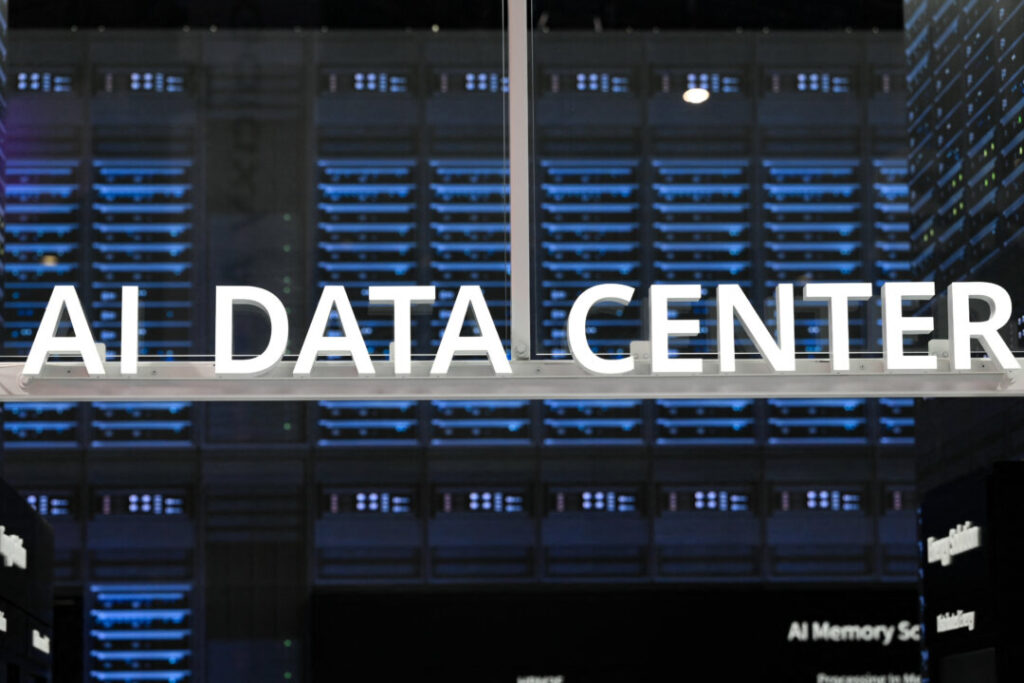
Signage of an AI data center is displayed during the MWC (Mobile World Congress), the world's biggest mobile fair, in Barcelona on March 3, 2025. Surrounded by investment and innovation projects, the Mobile World Congress (MWC) kicks off today in Barcelona amid a context of euphoria but also tensions over artificial intelligence (AI), whose rapid advancement is shaking up the tech sector. (Photo by Josep LAGO / AFP) (Photo by JOSEP LAGO/AFP via Getty Images)
Australians are increasingly sceptical about the benefits of artificial intelligence (AI), with a recent survey revealing that a significant majority now believe it poses more risks than advantages. According to data from Roy Morgan Research, the percentage of Australians expressing a negative view of AI has risen to 65 percent, an increase of 8 percentage points since the last survey conducted in 2023.
The growing scepticism is notably pronounced among specific demographics. Women, older individuals, and those residing in regional areas are more likely to view AI as problematic. The survey, which took place from October 2-4, 2025, explored public perception of AI and its impact on daily life.
Regional Variations in Attitudes Towards AI
Across various Australian states, concerns regarding AI are particularly strong in South Australia and Tasmania, where 73 percent and 71 percent of respondents, respectively, believe AI creates more problems than it solves. This contrasts with New South Wales at 63 percent and Victoria at 64 percent. Both Queensland and Western Australia share a scepticism rate of 66 percent.
The survey indicates a clear trend in public sentiment, reflecting a broader global conversation about the implications of AI technology. As advancements in AI continue to permeate various aspects of life, concerns about privacy, job displacement, and ethical considerations appear to be at the forefront of the public’s mind.
Demographic Insights on AI Perception
Women demonstrate a higher level of scepticism compared to men, with many expressing concerns about the potential consequences of AI in their lives. Similarly, older Australians are more likely to perceive AI as a source of problems, potentially reflecting generational differences in technology adoption and trust.
This growing scepticism towards AI has implications for policymakers and businesses that are increasingly integrating AI into their operations. As public opinion shifts, it could influence future regulations and the development of ethical guidelines for AI use.
The findings from Roy Morgan Research highlight the importance of addressing public concerns and fostering a dialogue about the responsible deployment of AI technologies. As Australians navigate this complex landscape, understanding and mitigating the perceived risks of AI will be crucial for building trust and ensuring its benefits are maximized for all.






